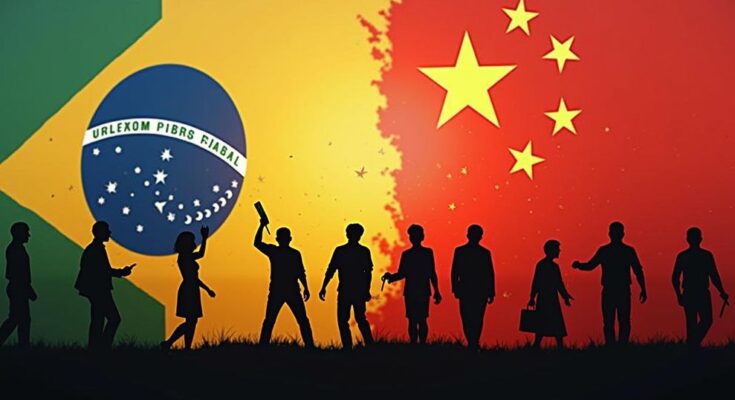Switzerland has expressed support for a peace initiative proposed by China and Brazil aimed at resolving the Ukraine conflict. This marks a significant change in Switzerland’s diplomatic approach, particularly following changes in the peace plan that now references the U.N. Charter. While both sides of the conflict remain far from agreement, Switzerland’s involvement underscores its role as a mediator in international affairs.
Switzerland’s foreign affairs ministry has recently expressed its endorsement of a peace plan proposed by China and Brazil aimed at resolving the ongoing conflict in Ukraine. With the war now in its third year, both Ukraine and Russia remain divided on potential pathways to peace. Ukrainian President Volodymyr Zelenskiy advocates for a comprehensive victory, while Russian President Vladimir Putin insists that dialogue can only commence if Ukraine relinquishes significant territories and discards its ambitions for NATO membership. Switzerland, a nation known for its neutrality and conflict mediation, attended a 17-nation meeting at the United Nations General Assembly, led by Chinese Foreign Minister Wang Yi and Brazilian foreign policy advisor Celso Amorim. Nicolas Bideau, the chief spokesperson for the Foreign Affairs Ministry, stated, “We took part in this meeting as an observer and we support this dynamic.” Bideau elaborated that Switzerland’s perspective on the peace plan, originally introduced in May, has evolved significantly following the inclusion of a reference to the U.N. Charter, which obligates member states to maintain international peace. He remarked, “For us, this translates into a significant change in our view of these initiatives… A concrete diplomatic effort organised by the Sino-Brazilian group could be of interest to us.” Previously, Switzerland hosted a peace summit in Buergenstock which did not include Russian representatives, leading some analysts to interpret it as a maneuver by Western powers to marginalize Moscow, thus deviating from Switzerland’s longstanding tradition of neutrality. Recently, Swiss diplomats have indicated that they are exploring locations for a subsequent summit, with particular interest in nations from the “global South.”
The ongoing war in Ukraine, which began with Russia’s invasion, has led to a protracted conflict with no clear resolution in sight. As both Ukrainian and Russian leaders remain entrenched in their positions, international mediators have sought to find pathways to negotiation. Switzerland, known for its neutral stance and as a mediator in international conflicts, has traditionally hosted peace discussions. The involvement of China and Brazil introduces a new dynamic to these efforts, positioning them as potential leaders in fostering dialogue. Switzerland’s shift in support for the Sino-Brazilian peace initiative, influenced by an emphasis on the U.N. Charter, reflects a strategic re-evaluation of its neutrality and diplomatic role amidst evolving geopolitical tensions.
In summary, Switzerland’s recent endorsement of the China-Brazil peace plan illustrates a notable shift in its diplomatic stance regarding the Ukraine conflict. This shift indicates a potential reorientation of Switzerland’s approach to international mediation, particularly in light of the inclusion of references to the U.N. Charter referring to peace. As the situation in Ukraine remains dire, the cooperation between China and Brazil may offer fresh opportunities for dialogue, while Switzerland continues to navigate its role as a neutral facilitator in global conflicts.
Original Source: www.usnews.com




